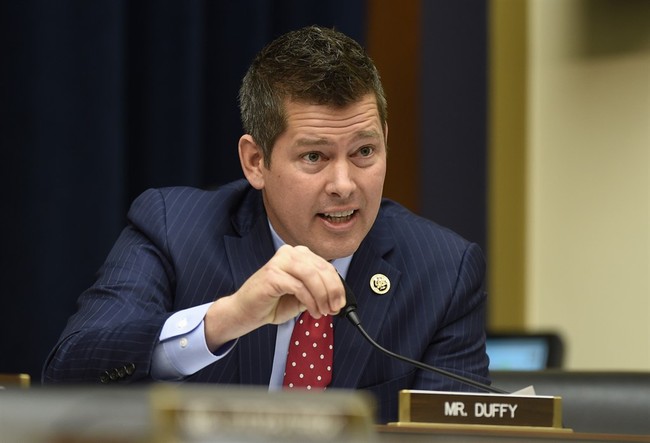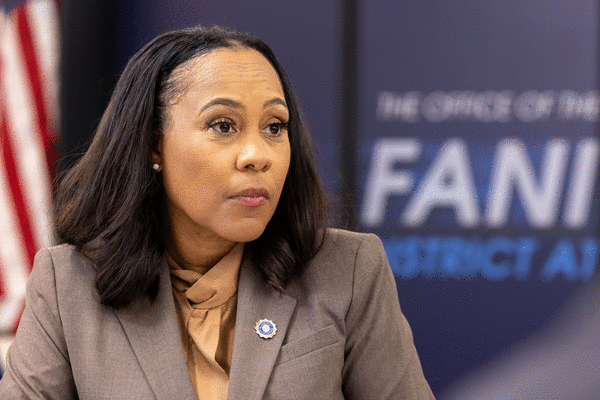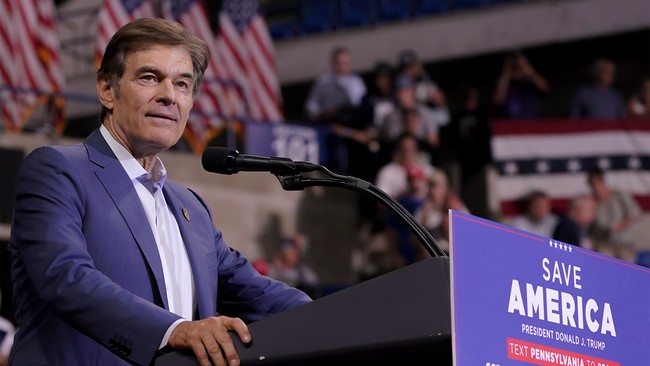Trump's Controversial Cabinet: Sean Duffy's Role
Delve into the implications of Sean Duffy's appointment as the Secretary of Transportation under Trump's presidency, marking significant political and infrastructural changes.
Published November 20, 2024 - 00:11am

Image recovered from redstate.com
The recent nomination of Sean Duffy as the Secretary of Transportation in Donald Trump's forthcoming administration has sparked widespread discussion. Duffy, a former Wisconsin congressman and Fox News host, emerges as a key figure amidst Trump's unfolding cabinet picks. This selection has drawn attention not just for its political undercurrents but also for the significant impact it could have on the nation's transportation infrastructure.
As a prominent Republican voice during his tenure in Congress from 2011 to 2019, Duffy was known for his advocacy for fiscal responsibility and rural economic development. Trump's announcement lauded Duffy's past efforts to bridge bipartisan gaps, particularly noting his collaboration with Democrats on substantial infrastructure projects in Minnesota. Despite this, Duffy lacks direct experience in transportation governance, a point critics have seized upon.
Trump's choice of a Fox News figure has raised eyebrows, with some viewing it as a continuation of aligning with media personalities who share a favorable stance towards his administration. Duffy will join another Fox-affiliated individual, Pete Hegseth, nominated for Secretary of Defense, marking a notable trend in Trump's appointments.
The task ahead for Duffy is formidable. Once confirmed by the Senate, he will oversee a department with a budget exceeding $100 billion. His role will encompass overseeing the nation's highways, bridges, tunnels, and airports, a sector vital to national and economic security. Trump's vision for Duffy's tenure includes ensuring safety in the skies and rebuilding infrastructure with an emphasis on excellence and competitiveness.
Another layer of complexity is added by the involvement of Elon Musk, who, while aligned with Trump, manages enterprises with extensive federal contracts. This relationship emphasizes commercial interests intertwined with governmental operations, highlighting potential conflicts of interest and questions about transparency.
While some Republicans are enthusiastic about Duffy's appointment, citing his bipartisan respect and communication skills, others express reservations due to his lack of transportation expertise. Skeptics worry about implementing policies that might prioritize political alignment over technical and sectoral knowledge. Nevertheless, Trump and his transition team express confidence in Duffy's ability to foster innovation and elevate travel experiences across the country.
Another critical aspect is the context of Duffy's departure from Fox News as he steps into his potential new role. His prior media presence through Fox Business's 'The Bottom Line' shapes much of his public persona, blending infotainment with political commentary. This raises discussions about media influences in governmental affairs, echoing broader concerns over the politicization of news outlets.
The Senate's upcoming confirmation process will likely scrutinize these factors, determining Duffy's suitability and preparing him for leadership in one of the most watched sectors. Political dynamics within the Republican party also play a role, as dissenting voices may emerge against what some perceive as populist over governance-focused appointments.
In conclusion, Sean Duffy's nomination as Secretary of Transportation by Donald Trump underscores significant strategic, political, and infrastructural shifts. As Trump's cabinet takes shape, it reflects broader themes of media involvement and sectoral reorganization that could redefine American governance structures in the years to come.






